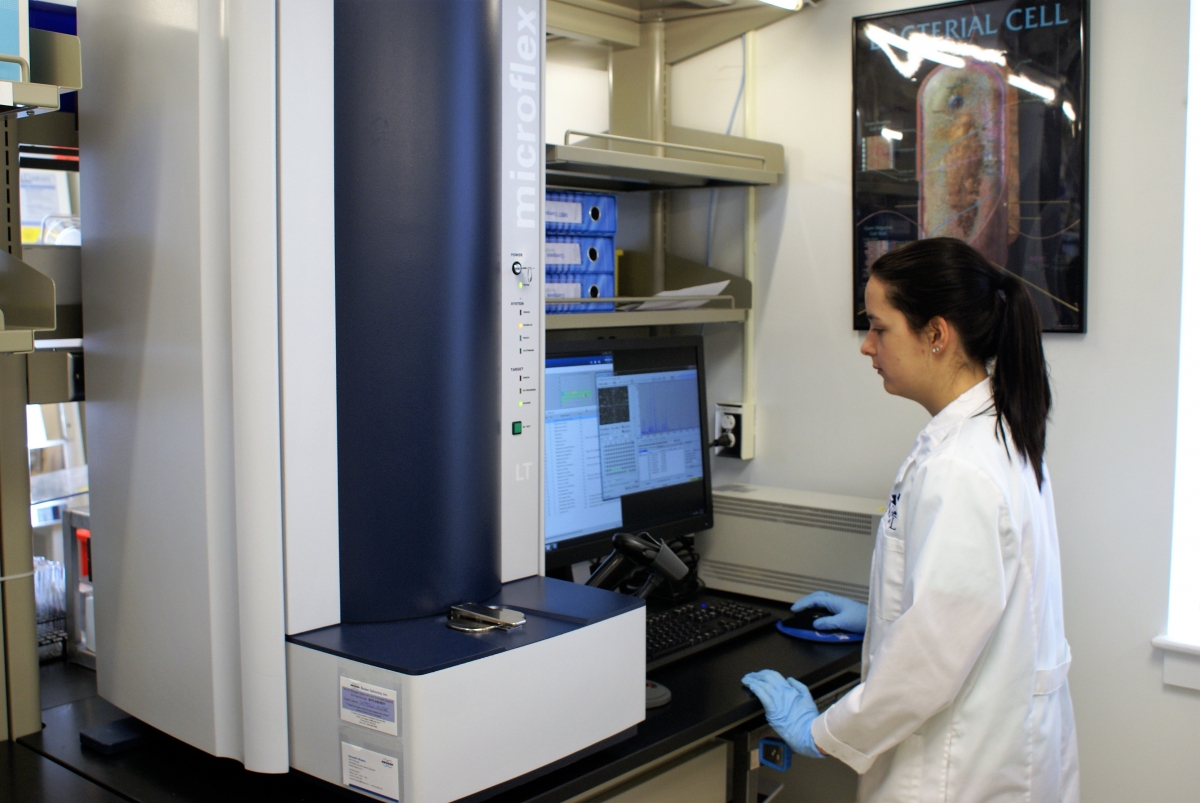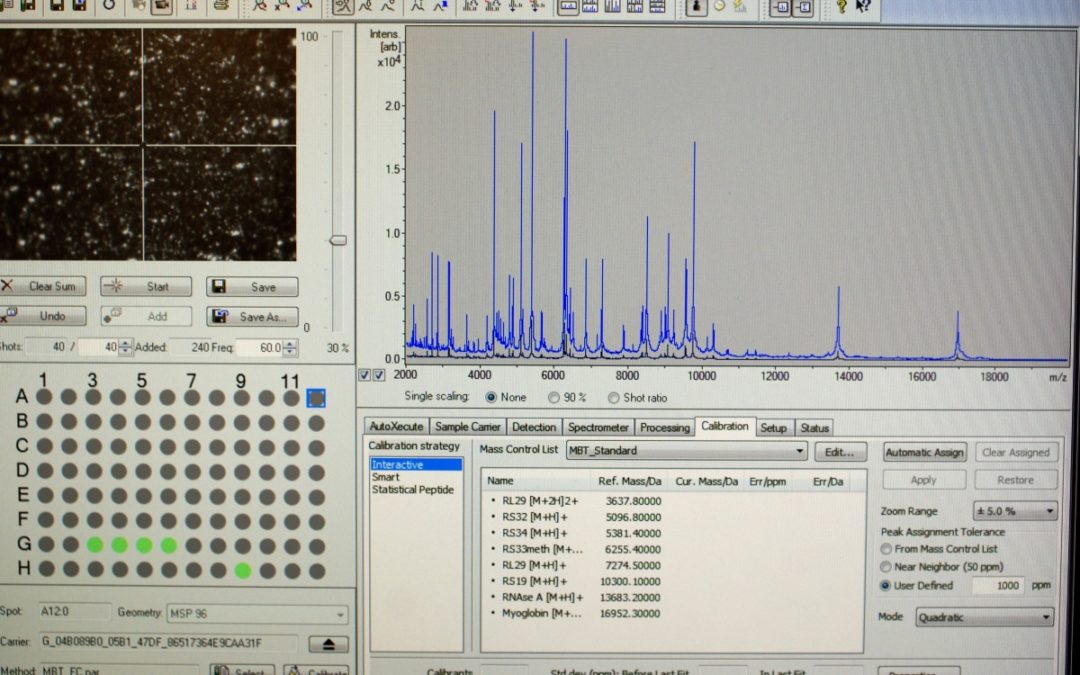I wrote recently about how human medicine and veterinary medicine are starting to share their efforts fighting the development of antibiotic-resistant disease. (Here is the piece) UNH sent out this item today about one of the main tools in that effort:
By Lori Wright, UNH News Service: The New Hampshire Veterinary Diagnostic Laboratory at the University of New Hampshire has been recognized by the state for its efforts to mitigate antimicrobial resistance by rapidly identifying infections in animals and performing other diagnostic tests in service to the state and region.
The laboratory received the New Hampshire Antimicrobial Stewardship Award from the state Division of Public Health Services. Antibiotic resistance occurs when bacteria change in some way that reduces or eliminates the effectiveness of drugs, chemicals, or other agents designed to cure or prevent infections. The bacteria survive and continue to multiply, causing more harm.
The lab serves the state of New Hampshire as a key partner with the state commissioner of agriculture and state veterinarian in their efforts to monitor and control important animal diseases. The lab also provides diagnostic services to hundreds of veterinarians from New Hampshire and New England who use the lab’s services for the diagnosis of animal diseases in pets, farm animals, wildlife, zoo, and marine animals.
“As veterinarians, we are obligated to help protect public health,” said Stephen Crawford, state veterinarian. “We do this in the name of One Health. One of the current issues of greatest concern and interest to One Health is the mitigation of antibiotic resistance. This is a wildly complex issue, and the engagement of both animal and public health experts is critical. One of the best ways to improve antibiotic stewardship is with rapid and accurate diagnostic testing and recommendations.”
When the state experiences an outbreak of an infectious disease in animals, the time it takes to identify the disease can have a significant impact on the treatment and outbreak response. In 2017 the lab reduced what could take days down to minutes after acquiring Matrix Assisted Laser Desorption Ionization Time of Flight Mass Spectrometry (MALDI-TOF) instrumentation, a sophisticated type of mass spectrometry.

UNH student employee Monica McEvoy uses the MALDI-TOF instrument at the NH Veterinary Diagnostic Lab at UNH. Credit: Rob Gibson/UNH
“MALDI-TOF provides rapid and accurate identification of microbial agents,” said Robert Gibson, managing director of the New Hampshire Veterinary Diagnostic Laboratory. “With thousands of organisms in the database, this is the most in-depth level of identification available other than performing DNA sequencing, which can be more costly and time consuming. After the organisms are grown, the time for a bacterial identification is minutes when compared to traditional methods, which can take days.”
“Accurately and rapidly identifying infectious agents is critical in safeguarding animal health, public health and New Hampshire agriculture. The majority of infectious diseases in people, including the top bioterrorism agents, are considered zoonotic, which means they can be transferred from animals to humans. The speed at which we will be able to help diagnose contagious and reportable diseases to our clients and regulatory officials will have a significant impact on treatments and outbreak response,” Gibson said.
Even with a quick diagnosis, it is often important to begin antibiotic treatment before a confirmed diagnosis is returned. This creates opportunity for incorrect antibiotic choices that may need to be changed, which is unhelpful for managing resistance. The lab’s work to develop a veterinary antibiogram—a tool that compares common infections in the state with the most effective medications to treat those local bacteria—from its sample library will reduce this risk by providing veterinarians with an educated start to begin antibiotic treatment while they await test results.
The lab serves the state of New Hampshire by providing accessible, timely, and accurate diagnostic services for the New Hampshire Department of Agriculture, Markets, & Food, New Hampshire Department of Health and Human Services, New Hampshire Fish and Game Department, state and local law enforcement agencies, veterinarians, farmers, and other relevant state, regional, and federal agencies. It is co-funded and co-managed by the New Hampshire Department of Agriculture, Markets & Food and the UNH College of Life Sciences and Agriculture. It has served the state and the university since 1970, working at the junction of animal health, public health, environmental health, and economic health.


 Return to the Concord Monitor
Return to the Concord Monitor